electronics-journal.com
17
'22
Written on Modified on
PcVue Solutions: Optimization and control of nationwide EV charging stations
How PcVue supervises the charging stations of FIRALP e-vehicles fleet.
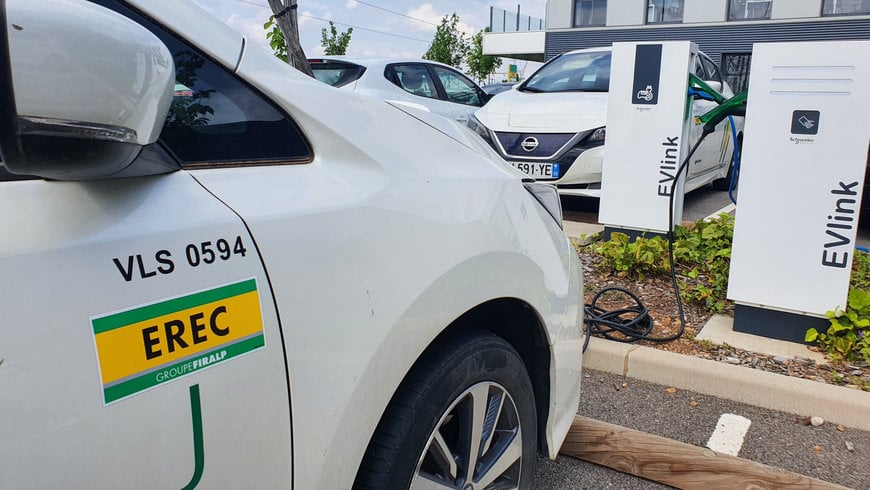
As sustainable mobility has become a priority for many countries, notably in Europe where the parliament just voted to end sales of petrol and diesel cars by 2035, e-vehicles have grown into a booming market.
According to a new report by specialized site EV-Volumes, global EV sales reached 6,75 million units in 2021, 108 % more than in 2020. This volume includes passenger vehicles, light trucks and light commercial vehicles. Moreover, the number of electric vehicles on the road should reach at least 145 million units by the end of the decade as per the International Energy Agency (IEA) estimates.
At FIRALP, the move to electric vehicles has been underway for several years now. However, 2022 marks a decisive shift, with more than 100 electric vehicles ordered and charging stations already installed in the branches. The deployment of dual-energy pods is also continuing, as is the order for a dozen gas (CNG) trucks. This renewal meets environmental expectations and anticipates the restriction of the most polluting vehicles in low-emission mobility zones by 2025.
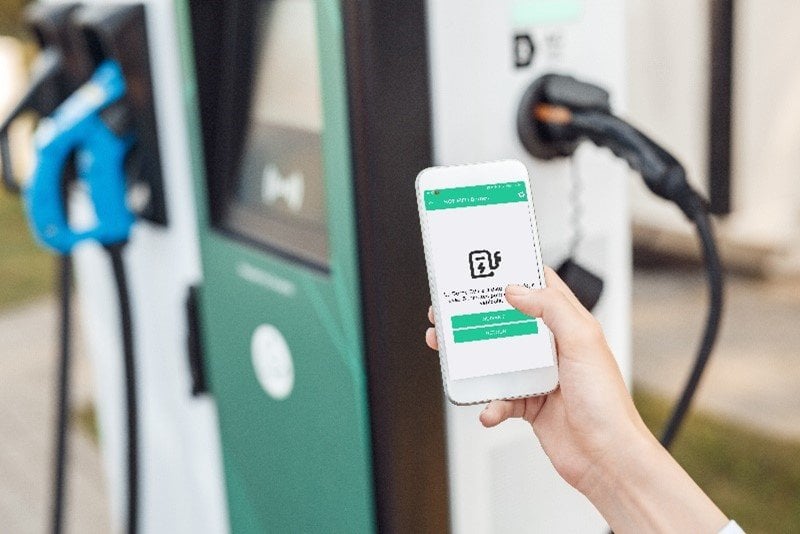
Managing mobility
To support its transition to electric vehicles, the group, through its subsidiary EREC, has chosen PcVue Solutions for the supervision of its charging stations.
EREC Technologies is a national specialist in process management and has been a PcVue partner for over 20 years; it supports its customers in the maintenance and operation of turnkey solutions in electricity and automation.
The project began in 2020 with the aim of managing internally the hundred-22kW charging stations of FIRALP’s fifty branches, with an open and flexible solution.
The tests carried out during the lockdown, allowed communication configuration with the charging stations of various manufacturers. OCPP was the selected protocol to monitor the stations for it ensures interoperability.
The charging stations also rely on Load Management Systems which required several firmware updates in order to obtain the desired performance.
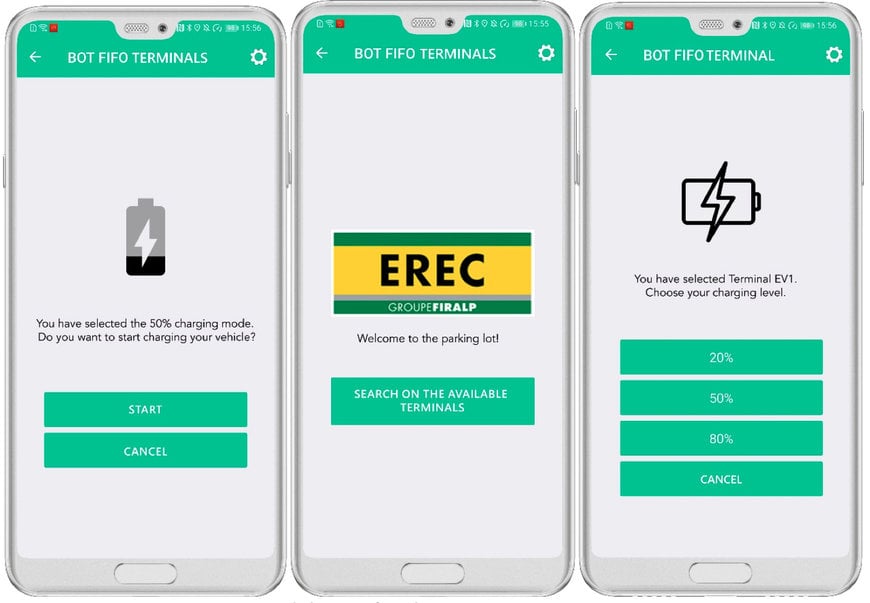
Mobile app for charging optimization
Several information are reported in the PcVue application: power delivered by station during charging in time, end-of-charge event, alarms, start/stop of charging. In addition, 10 WebVue clients provide access to reports visualizations for a better use of the stations. A BMS supervision of the head office, the Château, is also coupled.
As of today, access to the charging stations is free, but each branch has a portal to control it. The number of charging stations is currently sufficient for the number of e-vehicles, but the strong desire of the FIRALP group to expand their fleet of e-vehicles may make access to the stations increasingly difficult.
In the coming months, FIRALP will receive an order of more than 100 electric vehicles to complete their fleet, thus requiring the implementation of resource optimization tools. It is in this context that the innovative mobility solutions offered by the PcVue platform were presented to the FIRALP group.
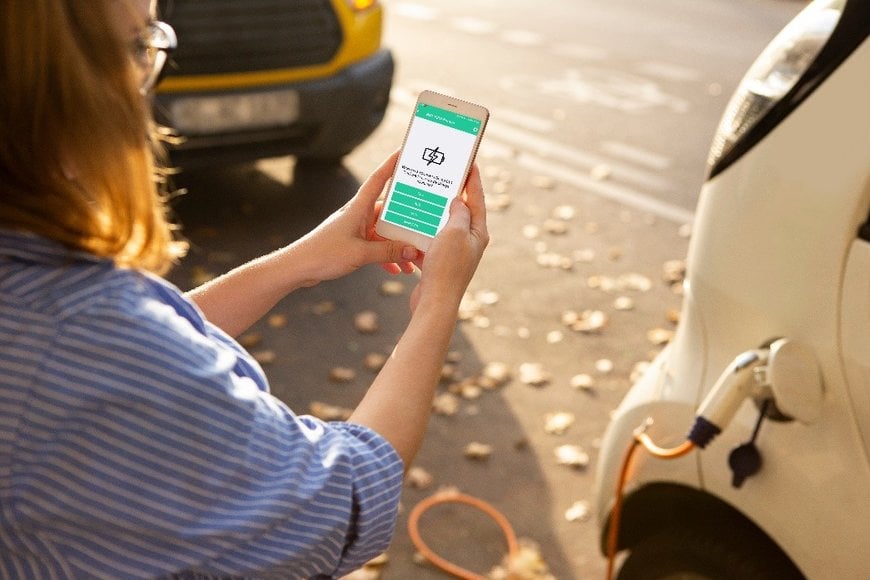
Digitizing the Queue Ticket Machine: how PcVue makes life easier for EV car drivers !
The main problem that EV car drivers may encounter concerns the cars remaining connected even after a full charge, making the charging station inaccessible for other waiting vehicles.
To solve this challenge, PcVue Solutions offers a solution that allows e-vehicles drivers to sign in with their cell phone when they arrive at parking lots and to indicate the desired charge rate. PcVue stores this information regarding the charge need and rate and when a charging station becomes available, the PcVue platform is able to notify the driver on his mobile of the charging station to use.
Once the vehicle is connected, PcVue will trigger the charging. A configurable time-out is also available if the driver decides to finally not charge his vehicle, in that case PcVue move to the next charging request available in its ticket queue.
The mobile application dedicated to vehicle charging stations is realized without a single line of code thanks to PcVue's bot functionality. It allows the creation of a mobile graphic interface adapted to the client's needs, both functional and graphic.
In the FIRALP context, it will be possible for the driver receiving the charging authorization on his mobile to transfer it to a third person in case of unavailability, or simply to postpone it.
These mobile and intelligent solutions allow the three parties involved: vehicles, charging stations and drivers, a perfect match between availability, charging and time.
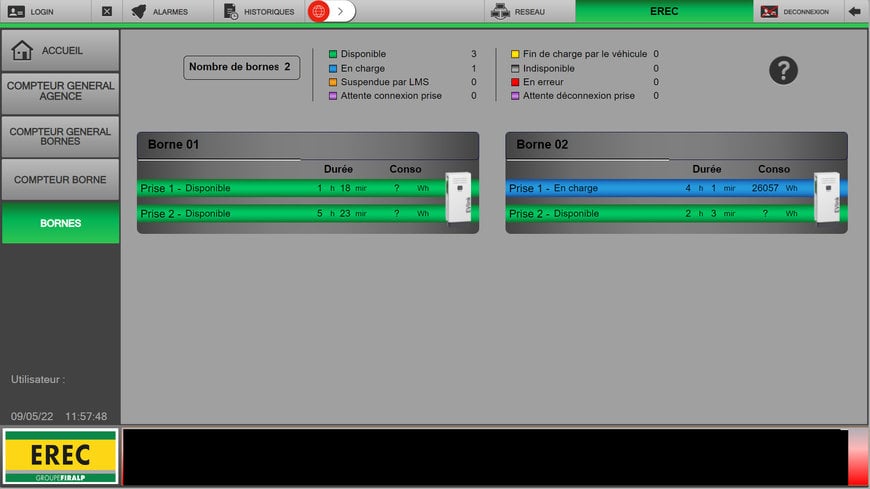
Adopted by all the employees, "Absolutely no one wants to go back to thermal vehicles", says Jerome Dorne, head of studies and execution, about 40 new charging stations of various powers and from various manufacturers, as well as a hundred electric vehicles have been ordered by FIRALP.
One of main ambition is to have a solution ensuring MOC (Maintenance in Operational Condition) that is to say an obligation of maintenance contract for each installation of a charging station.
In the near future, EREC would also like to become an installer for several other customers.
Towards even greater energy efficiency
Finally, the energy performance of FIRALP's assets has always been the subject of innovation: the Montereau-sur-le-Jard site, south of Paris, is already covered with 600 m2 of photovoltaic panels managed by the Departmental Energy Syndicate. The next new buildings will also be equipped with them. The Group plans to go one-step further by recovering solar energy for its own consumption. The principle is to use the energy produced by the panels of its truck shelters to power the heating and air conditioning of buildings or to charge electric vehicle terminals.
"Our objective is to control the energy of our buildings, whether it comes from the panels or from the ENEDIS network, an expertise mastered by our subsidiary EREC. These actions should reduce the footprint of our buildings by 10%" emphasizes François Chapel, real estate manager at FIRALP.
In addition to self-consumption, the next high tension site in Meyzieu, near Lyon will experiment with energy storage using recycled batteries. It will be the first site to be built with low-carbon asphalt. A composition based on Landes pinesap will also be tested.
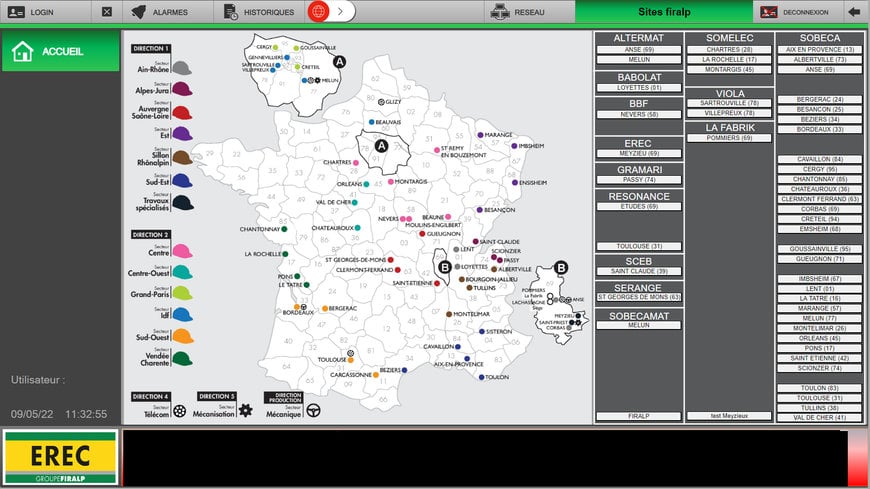
In 2021, FIRALP has carried out a full carbon assessment to calculate the direct greenhouse gas (GHG) emissions generated by the Group's activity. After the time of measurement, 2022 will be a time for experimentation and action.
To carry out this low-carbon approach, the Group has relied on the firm Oksigen. Following the assessment, 4 priority actions were defined to act on the carbon footprint (concrete, recycling, alternative energies and carbon calculator) and working groups were set up. The goal is to reduce their CO2 emissions by 10% by 2025 and by 20% by 2030.
The project in figures
- About one hundred 22kW terminals
- About 50 agencies
- About 40 new charging stations of various powers and from multiple manufacturers by 2023
- A hundred vehicles ordered in 2022
- A smart mobile application to optimize charging
www.evchargingcontrol.com
www.pcvuesolutions.com

